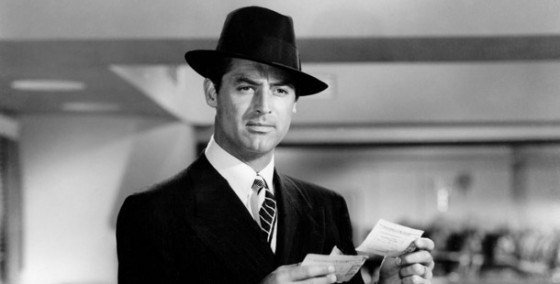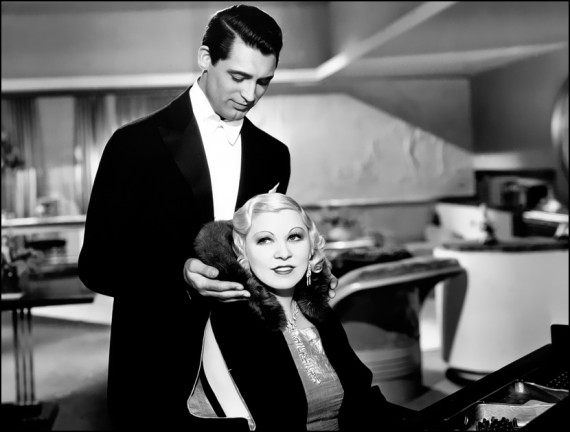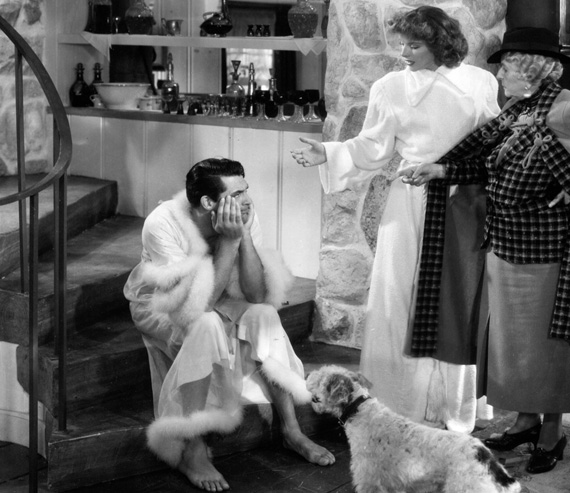Cary Grant in the timeless screwball comedy "His Girl Friday"
In his day, Cary Grant was arguably the biggest movie star in the world, and although he always seemed to be playing Cary Grant at some level he's still the most entertaining actor I've ever seen. He was a top box office draw for 30 years! That's an incredibly long time. Here's a look at how he came to be Cary Grant and some of his best work.
The Early Years and Vaudville
Cary Grant led an amazingly interesting life. He started out as a poor kid who turned to the theater and acrobatics at a young age to overcome his problems at home. This led to a trip the US. And once he was in the US, he decided to stay. Here's some details from Wikipedia.
Mae West Put a Jolt in His Career
Cary Grant and Mae West
Grant had been in 8 movies before he did "She Done Him Wrong" with Mae West. This film moved Grant from another actor in the Paramount studio system, to their biggest male star. West claims she cast Grant in the role when she saw him one day hanging out with extras on the lot and said, “If that man can talk, I’ll have him.”
In "She Done Him Wrong" Grant was on the recieving end of one of the most famous lines in Hollywood history when Mae West said to him to "come up and see me some time"
Grant's Golden Years: 1937 -1940
Cary Grant had a long career with many great films, but his streak of success from 1937-1940 is one of the greatest string of films that anyone has ever put together.
Grant's breakout year was 1937 when he was in two big hits: "Topper" and "The Awful Truth". "The Awful Truth," one of the early screwball comedies that would come to dominate the late 30's and early 40's, made Grant the top leading man in the industry.
Cary Grant and Kathryn Hepburn in "Brining Up Baby"
In 1938 he was in two great screwball comedies with Kathryn Hepburn: "Bringing Up Baby" and "Holiday". Baby is considereed one of the zaniest comedies of that era and was pretty much panned at the time it came out. It was revived after a Howard Hawks 1961 film festival in New York City that reintroduced the movies to critics who really ate it up. It many ways it has become the quintessential screwball comedy of that era.
In 1939 he was in two huge hits "Gunga Din" and "Only Angels Have Wings".
1940 was probably his best year though. He was in the classic "His Girl Friday" and the biggest box office smash of his career, "The Philadelphia Story" with Kathryn Hepburn and James Stewart.
"Bringing Up Baby", "His Girl Friday", "The Philadelphia Story", and "The Awful Truth" all ended up on AFI's top 100 Funniest Movies of All Time list.
Here's the trailer for "Brining Up Baby"
The Critics on Cary Grant
One of the besrt lines I've heard about Grant was from Pauline Kael. She often referred to Cary Grant “the most seduced man in history.” He was always being chased and never seemed to be caught until the point where he realized he'd be in their grasp the whole time.
Roger Ebert wrote this upon Grants death:
Everyone knows that Cary Grant was the most charming man in the history of the movies, but charm alone did not make him a star, and indeed he rarely offered only charm in a performance. There was always something underneath, a quiet reserve, a certain coldness, a feeling that he was evaluating his leading ladies even as he romanced them – and that dual nature is what made him so important in so many different kinds of films. He brought comedy to thrillers, danger to romance, and even a certain poignancy to slapstick farce. He always gave us more than we bargained for.
Pauline Kael wrote a long article on Grant in The New Yorker in 1975 that finished with this:


